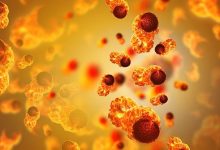What Cancer Patients Must Know About The Third Dose?: A Cancer Support Community Forum Initiative

With the Northwell Cancer Institute administering a third vaccine dose along with the NCCN (National Comprehensive Cancer Network) recommending a third COVID-19 dose for patients with cancer, here’s what cancer patients must know about the third dose.
THIRD DOSE AND THE IMMUNOSUPPRESSION CONNECTION
Immunosuppression is a common phenomenon among cancer patients. Chemotherapy and intensive, high-potential drugs for therapy often cause this potential side effect in many cancer patients.
One crucial point is that not every cancer patient might fall under the immunosuppressed category. The body’s weak defense system causes ineffective immune responses, thus, hampering the effectiveness of the vaccines. Therefore, not everyone may require the third vaccine dose.
For complete details for the eligibility criteria of the third vaccine dose, you can go through the UR Medicine update and CDC guidelines here.
WHAT TO KNOW ABOUT THE COVID-19 VACCINE?
In the United States, Pfizer and Moderna were the first two brands to receive authorization for emergency vaccine trials.
Below are some of the critical updates as a part of our cancer support community forum initiative:
- The US Food and Drug Administration (FDA) authorized the Pfizer BioNTech vaccine for people aged 16 and over on 23rd August 2021.
- Pfizer BioNTech vaccine is for emergency use in people aged 12+.
- The total Pfizer dose for age 16+ happens in two doses with a gap of three weeks.
- Likewise, Moderna for age 18+ also completes in two doses over a month apart.
- Jansen is a single-dose vaccine for 18 and older whose dosing schedule may vary across different regions.
Presently, the delta variant, the new predominant strain, has been quite a concern due to its high contagiousness. Considering this, the FDA authorized a booster shot of Pfizer and Moderna mRNA vaccines for immunocompromised adults.
Scientists have yet to confirm whether this strain variant impacts the body more severely or affects it differently. Till then, the emergency use authorization of these vaccines was done mainly for solid-organ transplant recipients and some cancer patients.
WHO ARE ALL ELIGIBLE FOR THE THIRD DOSE?
In general, CDC recommends people who have moderate to severe immunosuppression are eligible to receive an additional dose. However, not all cancer patients might be required to take the third dose.
Only patients undergoing:
- HIV infection
- Organ/ stem cell transplant
- Steroid therapy and particular cancer treatments that impair the body’s natural ability to fight infections substantially qualify to receive the dose
It’s not necessary to note that not all cancer patients have a weakened immune system. Following is the criteria of cancer patients who are considered as immunocompromised:
- Patients treated for blood cancer presently or within the last six months
- People within 12 months after treatment with B-cell depleting drugs such as Rituxan or rituximab at the time of their first dose
- Ones who have undergone a stem cell transplant or have received CAR T therapy within the last two years
- Cases of solid tumors undergoing chemotherapy treatments and immunotherapy presently or within the last six months
A noteworthy thing from the cancer support community forum is that these are generalized guidelines that cover the surface criteria. It’s best to consult with your physician/ provider.
Patients who are not eligible for the third dose include:
- Patients with solid tumors undergoing hormone therapy, surgery, radiation, targeted therapy or are under observation
- Certain patients need to consult the optimal timing with their respective clinical care team. This involves the timing of their stem cell transplant, CAR T treatment, or anti-CD20 monoclonal antibodies
EXPECTED SIDE EFFECTS OF THE VACCINE
Just like the general population, a patient suffering from cancer and immunosuppression can also expect the following common yet harmless side effects of the COVID-19 vaccination:
- Pfizer’s most common side effects and the Moderna vaccines include tiredness, headache, chills, joint pain, fever, and pain at the injection site. Side effects recede mostly within three days of the vaccine administration.
- The same cycle repeats for the second dose as well. However, if the side effects tend to last for more than three days, schedule an appointment with your doctor for the same.
The director of the NIAID and Chief Medical Advisor to the President, Dr. Anthony Fauci (MD), made an important revelation.
He said that everyone is likely to receive a third booster shot at some point shortly. This is about the diminishing immune responses diminishing over time. Additionally, you might not require a doctor’s note, but a patient attestation might be necessary. Also, different vaccine centers and pharmacies might have additional requirements for managing the vaccination process.
ADDITIONAL REFERENCES:
Fauci on vaccine boosters for immunocompromised and updated CDC guidance for pregnant women.



